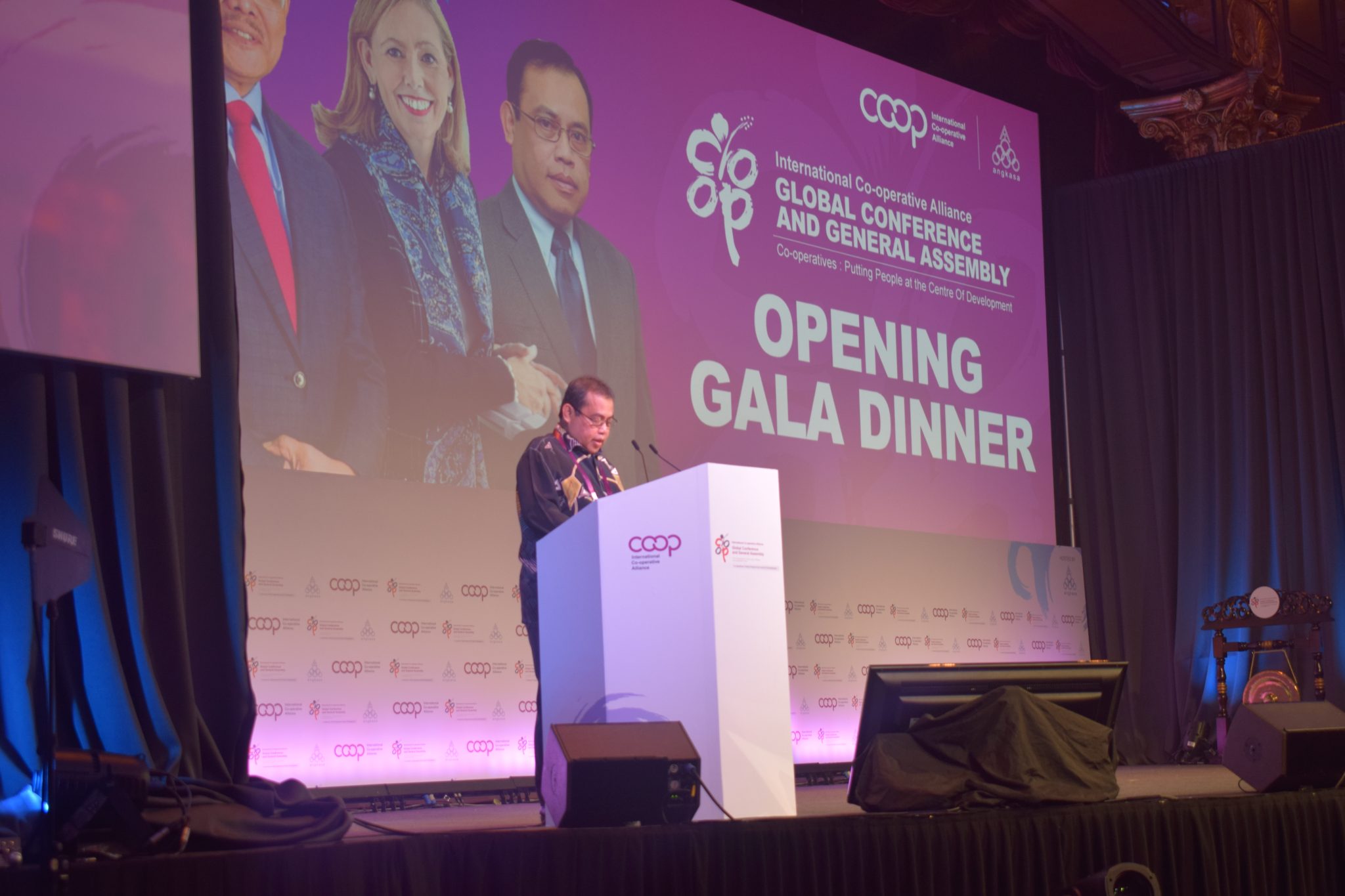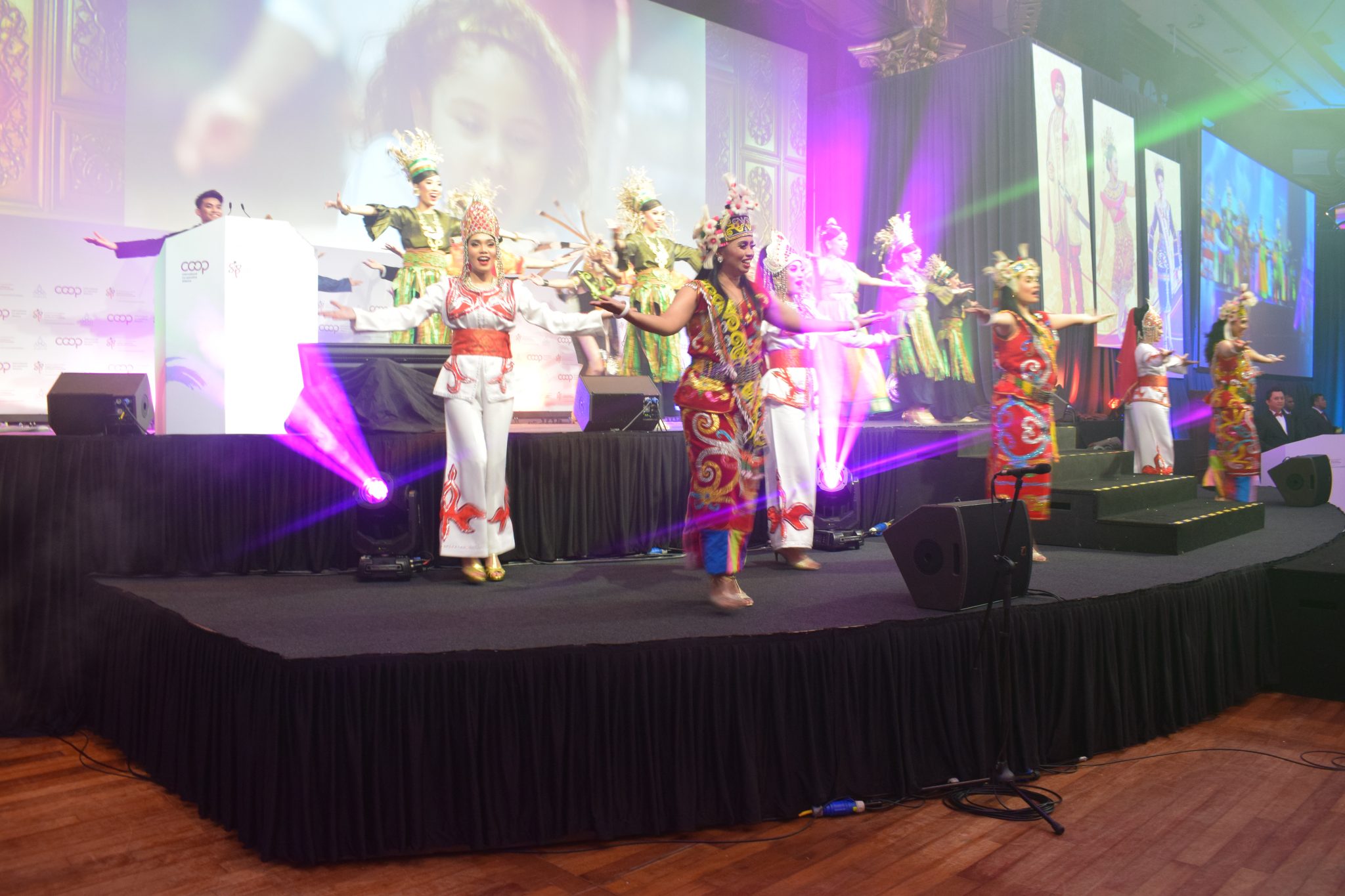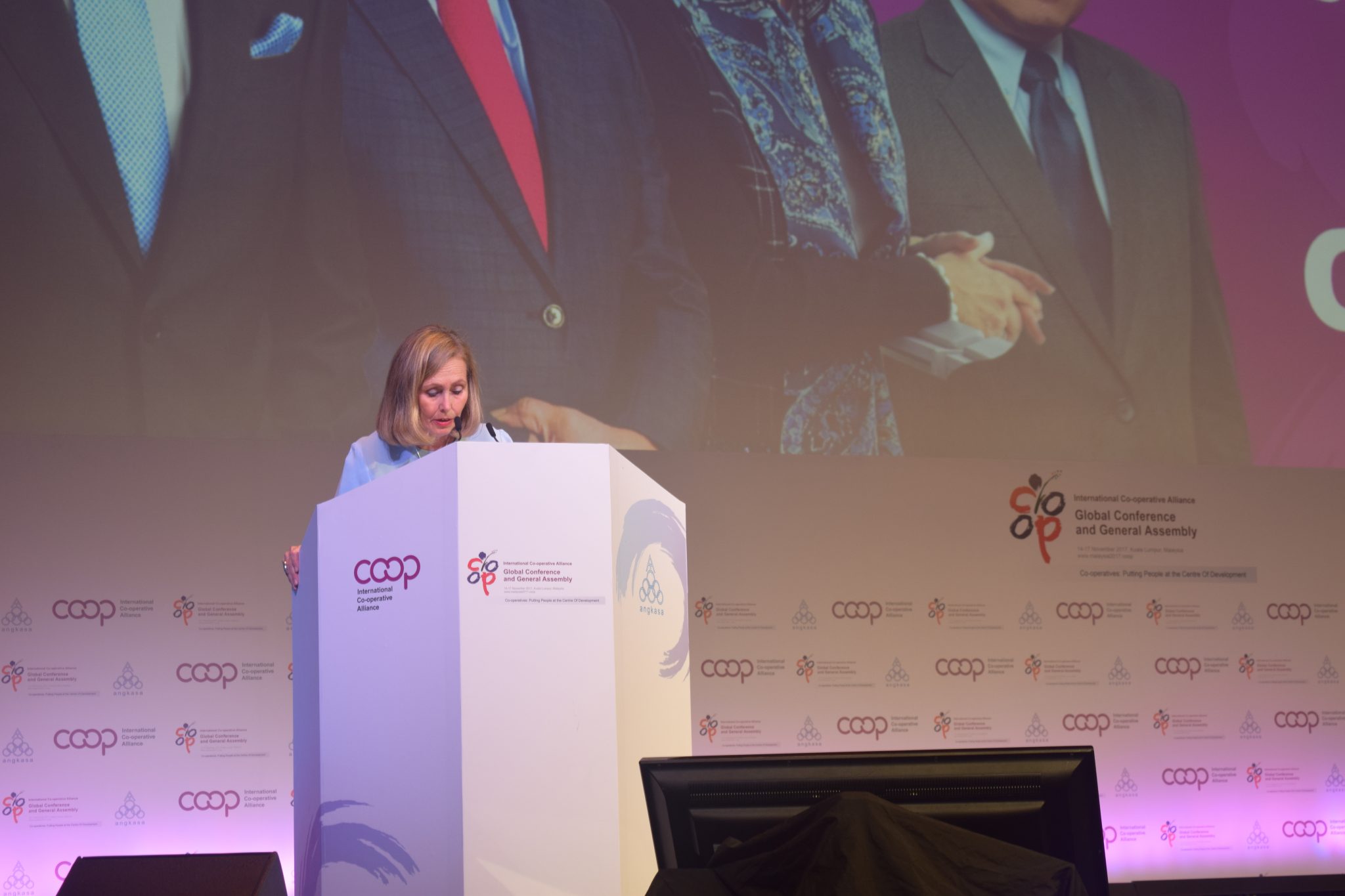The Global Conference and General Assembly of the International Co-operative Alliance is under way in Malaysia, with more than 1,800 delegates from around the world.
Visitors were welcomed by YBhg. Dato’ Abdul Fattah Abdullah, president of Malaysian sector body ANGKASA, during a gala dinner.

The event, in capital city Kuala Lumpur, will look at how co-ops are putting people at the heart of development. Alongside a focus on the UN Goals for Sustainable Development, there are sessions on issues including youth co-operation, health, the future of work and gender equality.
The Alliance is also electing a new president and full board.
Speaking at the gala dinner, YB Dato’ Seri Hamzah B. Zainudin, Malaysia’s minister of domestic trade, co-operatives and consumerism said his government would work with ANGKASA – the national apex body for the co-op sector – to ensure the continued growth of the country’s movement, and said he would reform co-op law.
“In Malaysia co-ops are one of the biggest sectors acting as engine for growth for our domestic economy,” he said.
“When it comes to big co-operatives all of us are having an equal say in the company. It doesn’t matter how much money you have in that co-op. You only have one say so the most important thing in a co-operative is leadership.
“Having so many leaders from over 90 countries is something we should be very proud of. We can learn from each other.”
The minister announced he was working on a new legislation for the country’s co-operatives that would be ‘progressive’ and wanted to give more opportunities to co-operatives to compete with any sector in the country.
Malaysia’s 12,000 co-ops have more than seven million members and a combined turnover of RM 34,950.98m (USD $8,126.29m).
Alliance president Monique Leroux told the dinner: “We can never say enough about how much the movement contributed to a better world.
“There is a wonderful diversity in this room, with women, men, young and not so young people from different countries. We are united in diversity.”
She added that in a complex world divided by economic inequalities the co-operative movement brought the message of peace, tolerance and respect for others.
“In fact, the co-operative movement has always been destined to remain a modern movement, always at the forefront of promising social and economic innovations. This explains why the co-operative movement is benefiting not only its members but all people and why the co-operative movement is bringing positive changes in communities and societies across the world.”
Looking ahead, the Assembly has two keynote speakers – former Norwegian prime minister Gro Harlem Brundtland and leading economist Linda Yueh.
In her 1987 report for the World Commission on Environment and Development, Dr Brundtland devised the concept of sustainable development, a theme she will return to in her speech, which will look at the role the co-op movement can make in moving the world to a more sustainable basis.
Prof Yueh, a fellow in economics at Oxford University, will look at the economic, social, and environmental challenges, facing the world in particular Asia, and will again look at how co-ops can provide solutions to them.

These challenges will be addressed throughout the conference; on Wednesday, 15 November, debates, workshops and networking sessions will address matters such as the refugee crisis, the need for a more collaborative economy, and the threat posed to employment by automation.
The event will stress the potential of co-ops to work with other civil society actors to lift people out of poverty, empower local communities and to improve the lives of billions.
And a study assessing the worldwide contribution or co-operatives to healthcare will be launched.
Thursday sees the presentation of the 2017 Rochdale Pioneers award and the launch of the new edition of the World Co-operative Monitor, which lists the world’s largest co-operatives and offers an analysis of the socio-economic value and impact of co-ops on a global, regional and national level.
Three simultaneous sessions will then look at the existing legal hurdles co-ops face, the path towards better statistics on co-operatives, and building sustainable supply chains.
Additional workshops and debates include a look at how co-operatives can move workers from the informal to the formal economy and how multi-stakeholder co-operatives are innovating in co-operative governance.

The Alliance holds its general assembly on Friday, which sees the election of the Alliance board and president, with Ms Leroux standing down. The candidates for the presidency are Ariel Guarco from Argentina and Yogeshwar Krishna from Fiji.

